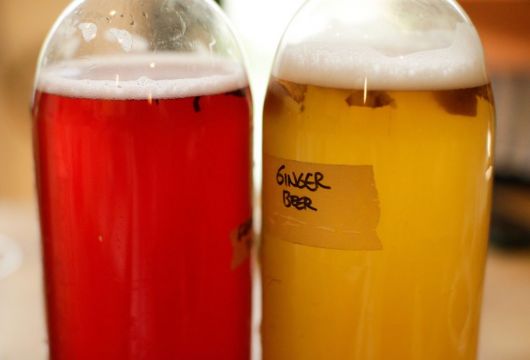Nine out of 10 plant-based fermented beverages such as kombucha, kefir and ginger soda make unauthorised health claims, according to the Food Safety Authority of Ireland (FSAI).
The FSAI carried out a survey on the unpasteurised drinks, examining a representative sample of 32 beverages on the Irish market to determine the level of compliance with European Union and Irish food labelling and health claims legislation.
The survey found 91 per cent of the drinks had unauthorised nutrition or health claims, such as “full of goodness” or “contains live cultures”, and also identified a problem with the alcohol content of some.
Under European Union labelling rules, the alcohol content of food products containing more than 1.2 per cent alcohol by volume must be declared in order to inform consumer choice.
However, the FSAI found 13 per cent of the beverages sampled had undeclared alcohol at concentrations above the labelling threshold, with undeclared alcohol ranging from 1.5 to 3.9 per cent.
Furthermore, 75 per cent of the drinks sampled were missing mandatory labelling information such address of producer, list of ingredients and best-before or use-by.
Alcohol accumulation
In light of the survey results, the FSAI today published new guidance on good manufacturing practices for the production of ready-to-eat unpasteurised fermented plant-based products, in order to assist producers to produce safe products.
Amid an increase in the popularity of the products over recent years, the FSAI said beverages in particular carry more risk because under certain conditions, fermentation can continue during handling and storage – leading to an accumulation of alcohol to significant levels.
Dr Pamela Byrne, chief executive of the FSAI, said methods used in producing unpasteurised fermented plant-based products can be “difficult to manage”.
There are obvious consequences too for those employed in professions where there are restricted levels of alcohol permitted
Advertisement
“Fermentation can continue during handling and storage, which can lead to an accumulation of alcohol. The inadvertent consumption of alcohol (up to 3.9 per cent according to the survey) could pose adverse health issues for vulnerable consumers like pregnant or breastfeeding women,” she said.
“There are obvious consequences too for those employed in professions where there are restricted levels of alcohol permitted such as certain categories of licensed vehicle drivers, machine operators and airline pilots.
“The guidance will help producers to achieve consistent production methods, safe storage, safe handling and safe transportation of fermented beverages.
“It also provides guidance about the labelling requirements for pre-packed fermented products. Food labels provide consumers with key information on the properties, ingredients, nature and characteristics of pre-packed food to enable them to make informed food purchasing decisions.”
The guidance on good manufacturing practices for the production of ready-to-eat unpasteurised fermented plant-based products is available to view here.







